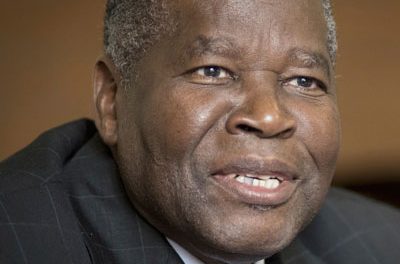
Visa shows connectivity lagging in southern Africa

Visa’s fourth edition of its Africa Integration Index launched last week at the World Economic Forum in Durban shows a key trend that sub-Saharan African economies rank amongst the least connected in the world.
The Index looks at the nature of a country’s connectedness as a sign of sustained impact. Titled Connecting for Growth, Economic Inclusion & Prosperity, the research expands on previous editions to include more countries, covering 75% of Africa’s population and 85% of its output. Assimilating country and industry data, together with information proprietary to Visa, the index measures and offers insight into economic connectedness for sub-Saharan economies.
“The evidence of the past five decades is that the pivotal factor for sustained, elevated and inclusive growth is the ability of countries to connect functionally and effectively to others,” said Dr. Adrian Saville, the report’s author, and Professor in Economics and Competitive Strategy at the Gordon Institute of Business Science.
“To achieve and sustain the growth rates Africa has seen has only been possible because the world economy is more open and integrated. The Visa Africa Integration Index aims to improve our understanding on the importance of economic connectedness and to redress the deficit in information and knowledge on the mechanisms of socio-economic integration, which enable and promote social and economic development,” he added.
This year’s report sees five clear trends which are: First, sub-Saharan African economies rank amongst the least connected in the world. However, since measurement began five years ago, the evidence points to connections growing quickly and effectively, particularly in East Africa, although Cameroon, Ghana and Zambia also stand out.
Second, in line with data for different countries studied over other periods, there is a strong correspondence between rising connectedness and improvements in economic and social wellbeing. For examples, Rwanda has displayed the largest relative gain in connectedness amongst the 19 countries in the index, which has manifested in a gain in per person income of 7% per year.
Third, the index also shows that some countries are more integrated globally than regionally and vice versa, which is important information for policy makers who aim to deepen and broaden integration in their respective regions. This is an important point because regional integration is a more powerful and sustained contributor to socio-economic advance than global integration. Yet, the regional connectedness for sub-Saharan economies lags other areas by a wide margin.
Fourth, all boats do not rise with the same tide. Whilst Kenya and Rwanda have made large gains in connectedness off relatively low bases over the five years covered by this research, Botswana has not moved much off its relatively high base, and Angola has struggled to improve off a low base. The Democratic Republic of Congo’s score has fallen.
Fifth, there is a strong, positive correlation between changes in economic connectedness and per capita incomes for the 19 countries over the six-year period 2011-2016 covered by the index.
Meanwhile, Andrew Torre, President for Visa sub-Sahara Africa said that, “An integrated Africa would be one of the largest economies in the world, providing sustained and inclusive economic opportunities for everyone, everywhere. We believe that a core building block to achieve that vision is an open and universal payment network which enables all Africans, consumers, merchants and financial institutions, to connect and exchange value, irrespective of borders.”
“Africa’s global leadership in digitizing cash illustrates the region’s potential in the 21st Century knowledge economy. Converting that potential into sustainable business models requires an ecosystem approach that transcends narrow interests, creating partnerships around open and competitive financial systems for the benefit of everyone. We are incredibly optimistic about the potential for this continent and its people, and look forward to investing for its future,” he added.










































